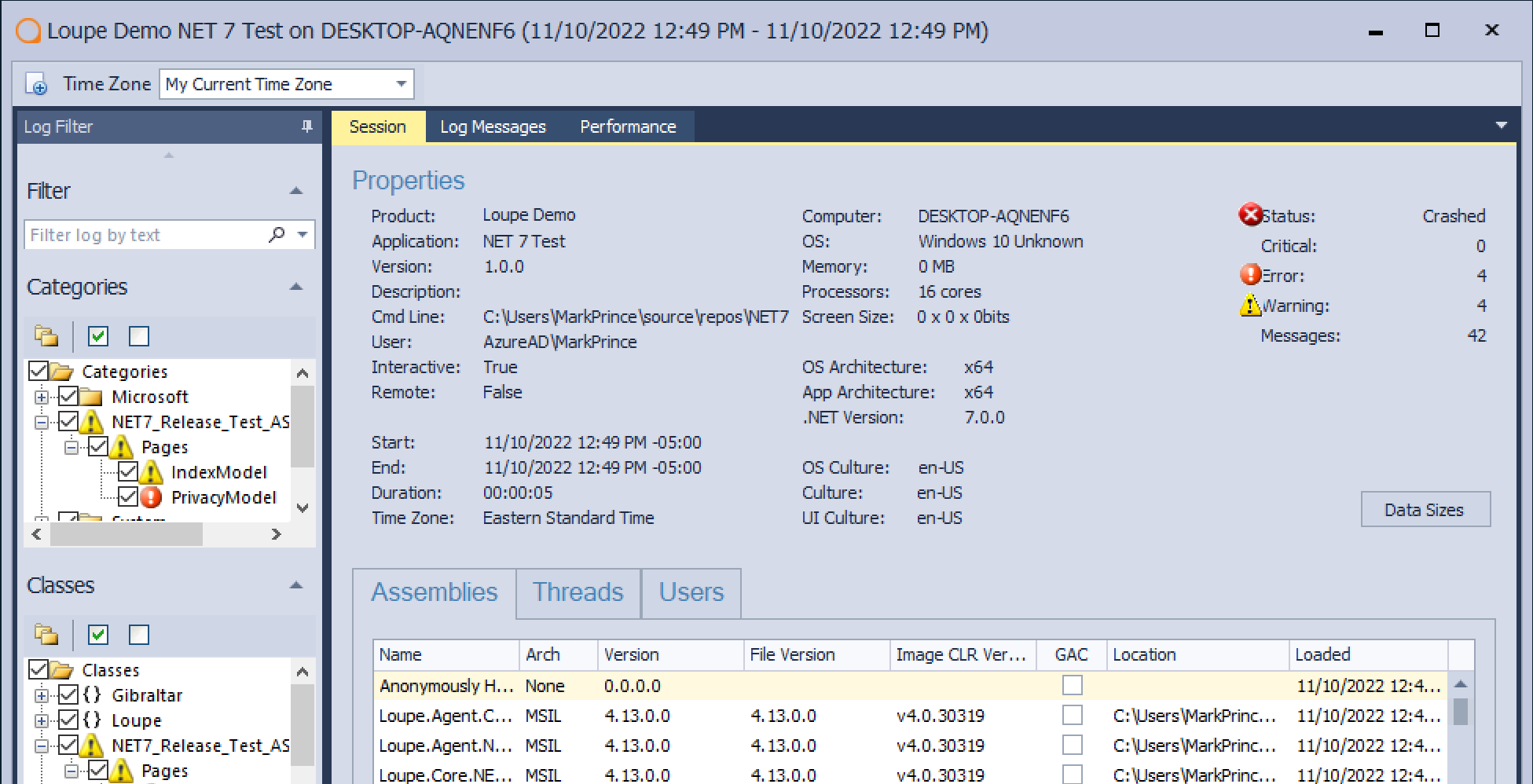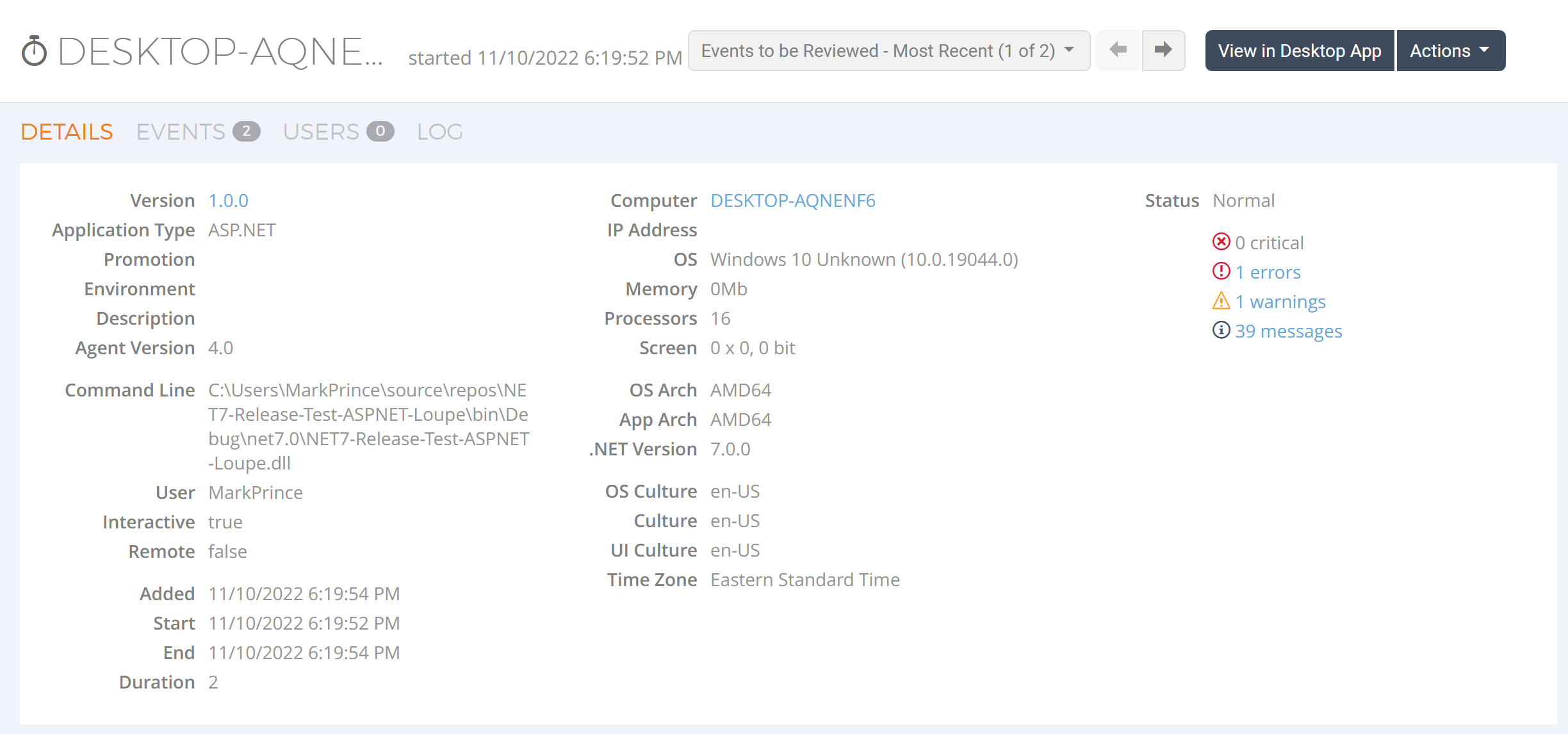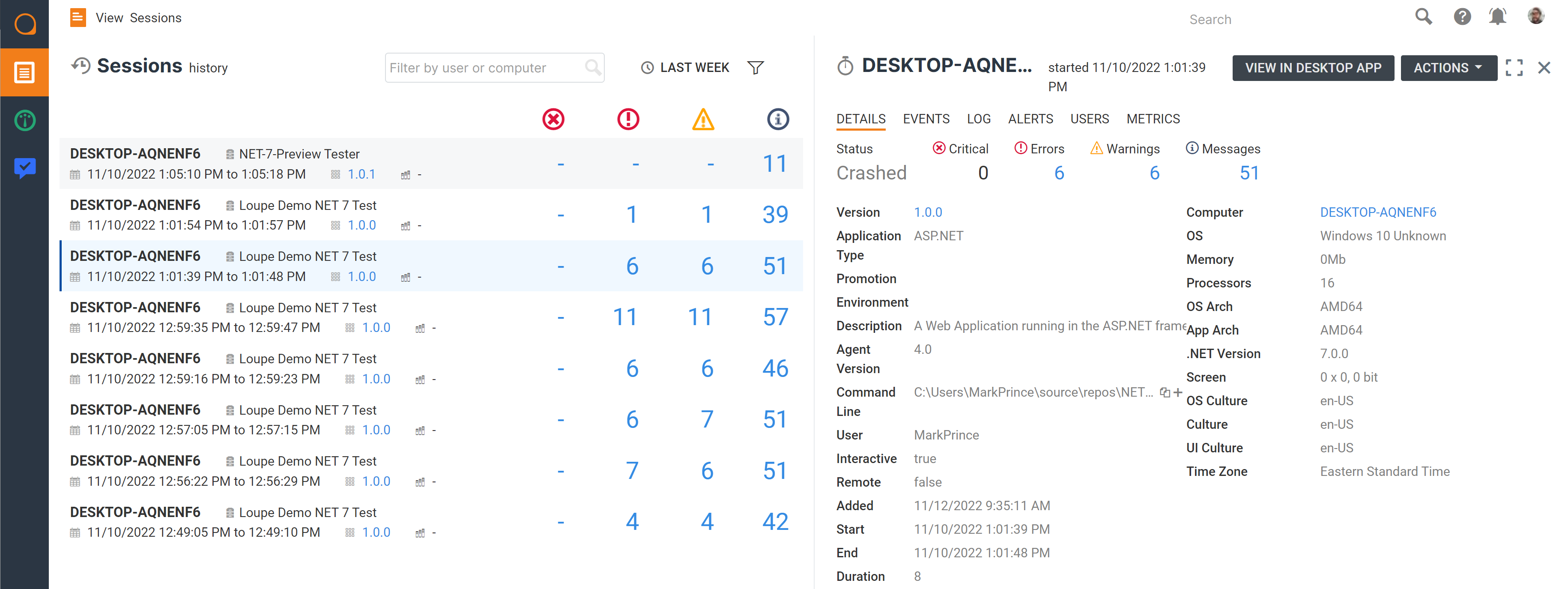What does it take to Log with Loupe on .NET 7?
A few days ago, .NET 7 was released. What does that mean for Loupe users and .NET users in general? Here, we will cover Loupe Logging on .NET 7, discuss the features of the newest .NET, and briefly discuss whether this release is worth migrating to.
Does Loupe Work on .NET 7?
Yes, it does. Loupe works on .NET 7 using the same agents and software we use for .NET 6 and the rest of .NET Core. So whether you’re migrating an existing application using Loupe or building one from scratch, we’ve got you covered.
Previously, I’ve already set up Loupe Logging on .NET 7 using the preview build. But it doesn’t hurt to verify using the full release, so this morning I created a .NET 7 project from scratch and connected it to Loupe Desktop. Here is a screenshot showing the session details, including the .NET Version:

I also sent some data over to my Loupe Server Repo, and here are the session details showing 7.0.0 in the “.NET Version” element:

And finally, I sent the data to the internal version of Loupe 5, which is releasing very soon:

Adding Loupe was easy, as the .NET 7 templates use the minimal startup Microsoft introduced in .NET 6. I used our Microsoft.Extensions.Logging agent to set Loupe as the logging provider, added a few settings to the appsettings.json, and I was good to go (I used the directions you can find here).
Should I Migrate to .NET 7?
If you’re already on the current .NET Core track, migrating to .NET 7 is likely not too hard but may have limited utility. It really comes down to whether .NET 7 includes any features that are interesting to you. Here you can read the Microsoft Update post. In short, these are the biggest updates:
- Performance improvements for OSR, Arm64, Native AOT, and the Mono runtime.
- Improvements to System.Text.Json serialization.
- Support for “generic math. AKA: you can use mathematic operations without needing specifying the exact type.
- Improvements made to regular expressions.
If any of these updates impact features you use, it’s worth giving .NET 7 consideration. If not, .NET 6 is still in its support period and perfectly safe to continue using.
If you are transitioning from .NET Framework, I would consider targeting .NET 6. While .NET 7 is a newer release, it actually has a shorter support window than .NET 6 (a long-term support release). Targeting .NET 6 will afford you more time to perform the migration, even if it doesn’t go as planned. If the support window for .NET 6 ends too soon for your scheduled migration date, consider that .NET 8 will be out by this time next year and is another long-term support release.
Whether You Use .NET 6, .NET 7, or Even .NET Framework, We’ve Got Your Logs
Loupe is built to work with .NET Framework and .NET Core applications. Better yet, getting started with Loupe doesn’t cost a thing. You can either log locally with any .NET application using Loupe Desktop (free, forever), or use the Loupe Trial to start your journey with centralized logging. You can learn more about the Loupe Trial using the link below.